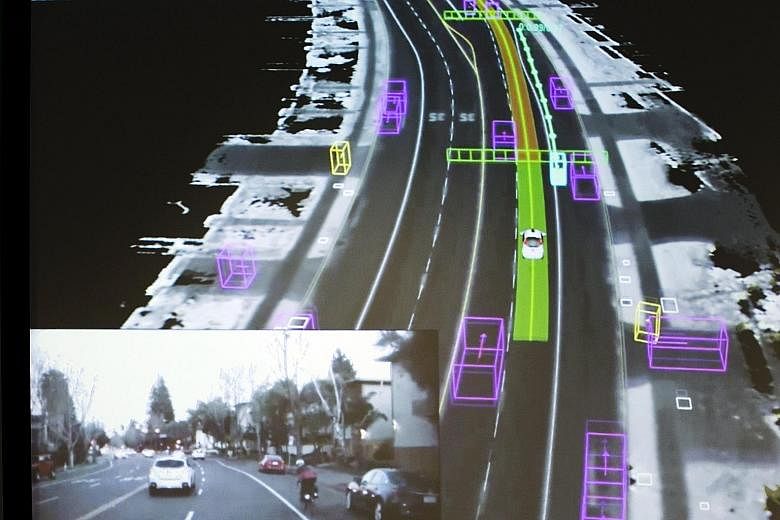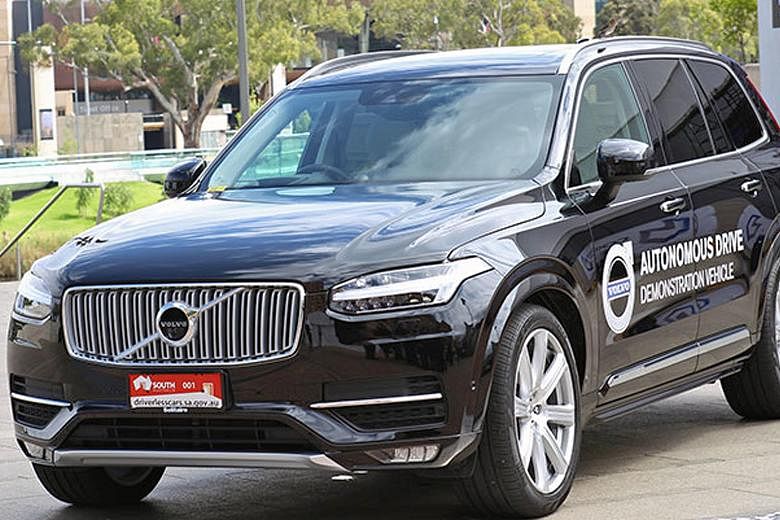A successful trial of a self-driving car on a public road in South Australia has raised hopes that the state will become a global hub for developing the technology and could gain a slice of a sector expected to be worth about A$90 billion (S$90.5 billion) by 2030.
In an effort to bolster its ailing economy, South Australia sought to take a global lead in testing and promoting the technology. The state is the only one in Australia - and one of the few places in the world - to introduce legislation to allow on-road trials of driverless cars.
The legislation requires companies conducting trials to be fully insured and ensures that the public is informed at least a month before any testing.
The first trial, involving a self-driving Volvo XC90 at speeds of 70kmh, took place along a 7km stretch of curving freeway near the state capital Adelaide. The car was able to keep to its own lane, change lanes and adapt its cruise control.
The Australian Road Research Board, which promotes new transport technologies, said the trial was the first in the southern hemisphere, describing it as a "turning point" which would help lead to safer roads.
"The good news is that we had no problems," Mr Gerard Waldron, the board's managing director, told The Straits Times.
"We are trying to demonstrate that this is the future. This vehicle technology is happening. It is closer than you think and we need to start preparing the way."
Last weekend's trial comes as Internet giant Google continues to improve its driverless vehicles, with other firms such as Tesla, Uber and traditional car manufacturers also making progress.
Analysts believe that self-driving cars overseen by humans could be ready to hit the roads in big cities within five years.
"This industry has the potential to revolutionise transport in Australia," said Mr Jay Weatherill, Premier of the South Australian government. He said the technology would improve safety, was environmentally friendly and offered "countless opportunities" for bolstering the state's economy, once the home of Australia's car manufacturing industry.
The state is expected to lose about 24,000 jobs as Ford, Toyota and General Motors Holden close plants nationwide following the federal government's decision to end industry subsidies.
Professor Anthony Finn, an expert on robotics and autonomous systems, said the adoption of driverless cars was likely to be gradual and would need to overcome both technical and legal hurdles.
He said the first stage would involve largely hands-free cars under the ultimate control of human drivers. This would be followed by the integration of these cars with traffic and, finally, a roll-out of autonomous cars where "the human doesn't need to be involved".
"I think we will see these (autonomous) cars on our roads within five years," he told The Straits Times.
"It will be a legal nightmare. You will have to be able to establish solid procedures and certification processes to integrate the cars into a society that is justifiably sceptical about the more extreme predictions about the technology."
Analysts believe Australia's long distances and straight roads make it well suited to testing driverless vehicles.
Professor Raj Rajkumar, from Carnegie Mellon University in the United States, attended a conference on driverless cars in Adelaide last week, and said that completely driverless cars were still about two decades away. But he added that automated journeys would be possible in the near future.
"What the vehicle can do today and in the near future is drive itself on the highways, in a traffic jam, change lanes on a highway, park itself," he told ABC News.



